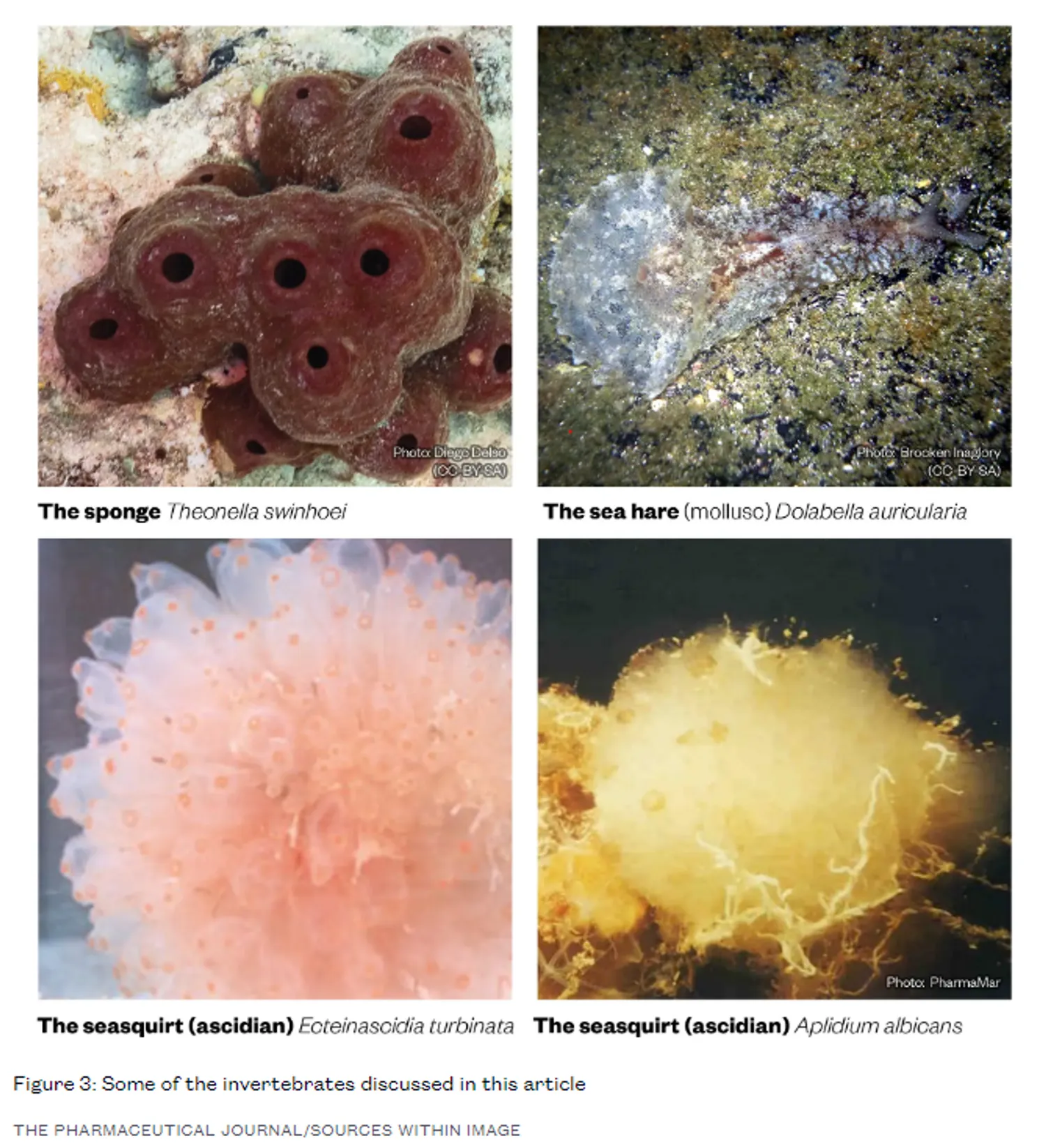Pharmaceuticals from marine sources: past, present and future

Co-authored by MARBLES partner Marcel Jaspars from University of Aberdeen (UNIABDN), this article reviews the factors that make marine natural products such a desirable target for drug discovery in the future, including the field's history, clinical trial accomplishments, and the challenges of achieving clinical approval.
Key points:
- Marine invertebrates and microorganisms produce novel marine natural products (MNPs) with potent and selective activity against many human diseases
- Marine biodiversity is greater than that on land with more than 20 marine animal phyla having no terrestrial representatives
- The greater the biological diversity investigated, the greater the chemical diversity that will be found — many of these marine-derived pharmaceuticals have novel mechanisms of action
- About 15–20 compounds of marine origin have been approved for human use against cancer, pain, heart disease and viral infections, with many more in the pipeline
- Aquaculture, chemical synthesis, and molecular genetics can supply material for clinical trials and clinical use;
- Antibody drug conjugate warheads developed from MNPs continue to feed the early clinical pipeline and offer exciting new avenues for MNP-based therapeutics
- Although anti-cancer properties have been primarily studied, preclinical pharmacology of novel MNPs has demonstrated antibacterial, antifungal, antimalarial, antituberculosis, antiviral, antidiabetic, anti-inflammatory as well as immune and nervous system bioactivity
- Understanding the mechanism of action added tremendous value to MNPs as they provide opportunities to decipher new biology that can be exploited to develop first-in-class therapeutics
- Technical improvements have sped up the time taken to isolate and structurally characterise novel compounds whilst reducing effort wasted on the rediscovery of known compounds
- These combined scientific advancements mean that pharmaceutical companies now regard marine natural product-derived pharmaceuticals with renewed interest.
Francesch, A.M., Glaser, K.B., Jaspars, M., Jiménez, C., Luesch, H., Mayer, A.M.S., Newman, D.J., Pierce, M.L. and Taglialatela-Scafati, O. (2024). Pharmaceuticals from marine sources: past, present and future. The Pharmaceutical Journal Vol 313, No 7987.
Read the full online article or download the PDF.
Within MARBLES, Marcel Jaspars leads Work Package 4 - Small Molecules-Generation of Chemical Diversity, which focuses on compound characterisation and modification. Known compounds are dereplicated (MS-MS networking, metabolomics, in silico dereplication based on biosynthetic genes), compounds isolated, and the chemical structures of novel compounds elucidated.